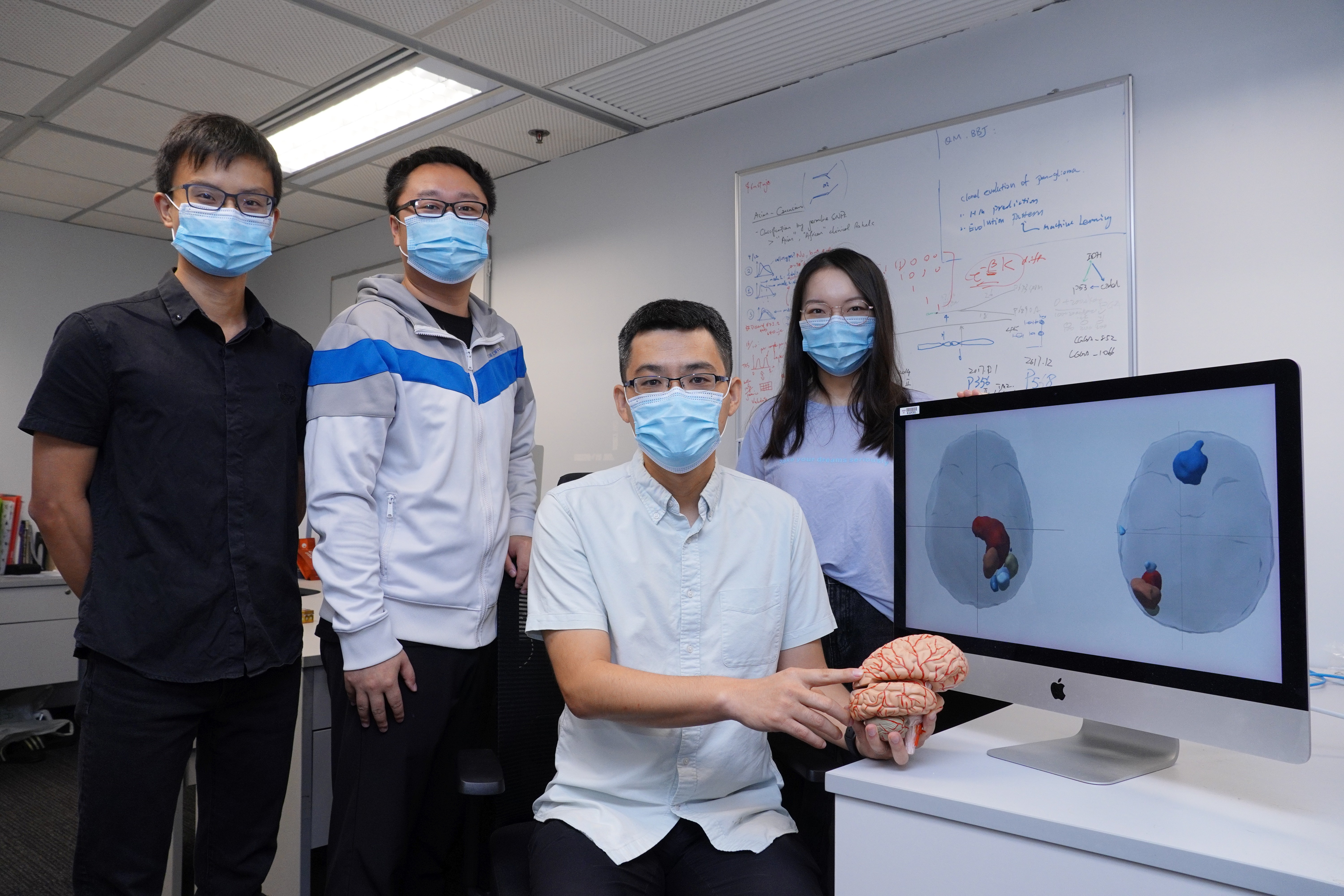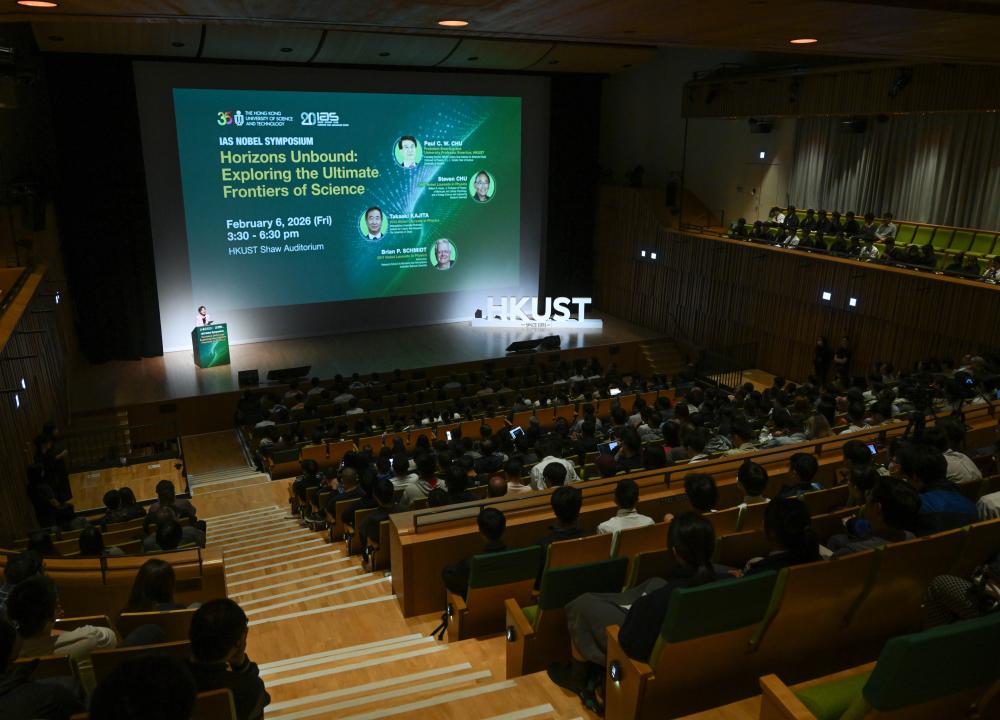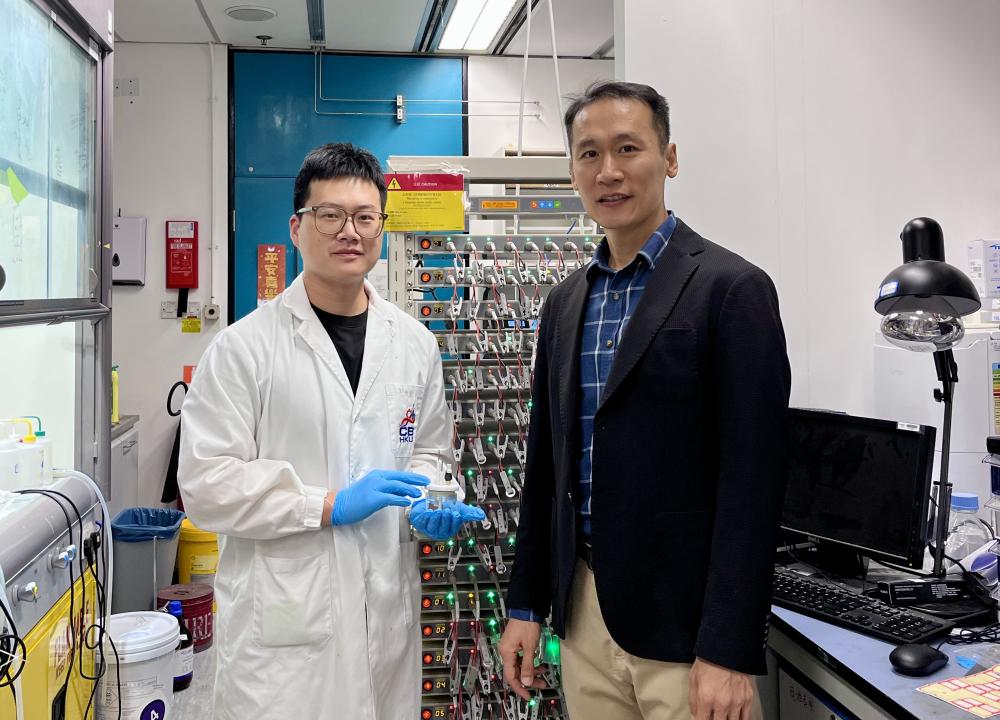科大研究團隊解開膠質瘤病人的化學抗性機制
由香港科技大學(科大)、北京市神經外科研究所,西班牙國家癌症研究中心(CNIO)共同領導的國際科研團隊,近日發現一種能解釋為何膠質瘤 - 一種常見而具攻擊性的腦瘤,其病人會出現化學抗性(chemo-resistance)的機制,或有助及早辨認有抗藥性的腦癌病人。
現時,主要治療膠質瘤的是一種結合放射治療和化學治療的藥物–替莫唑胺(temozolomide, TMZ)。這種療法可延長病人的整體生存時間,但是,大部分病人的腫瘤都會復發,並對TMZ產生抗藥性。
了解其他相關的研究﹕
科大研究團隊利用高性能計算 發現RNA聚合酶維持基因轉錄過程高度準確的機制
為了揭開箇中原因,由科大生命科學部兼化學及生物工程學系助理教授王吉光領導的計算基因組學實驗室(Wang Genomics Lab)研究團隊,利用電腦計算分析大量曾使用TMZ治療的復發腫瘤個案數據–包括已公開的個案,以及由北京市神經外科研究所江濤教授團隊收集的個案。團隊發現,在部分復發腫瘤之中,其染色體 10出現易位。其後,CNIO的團隊利用癌細胞株和動物模型,驗證基因重組的生物學功能。
基因易位可顯著地提高一種名為MGMT的基因的表達能力1 ,這基因能修復受TMZ破壞的癌細胞的DNA,導致治療失效。這項研究亦發現此類易位只出現於復發的腫癌之中,顯示化學抗性可能是由於治療本身而引發的後果。
王教授表示:「我們期望透過揭示這種機制,能幫助研發相關測試,以及早辨認具抗藥性的病人,協助醫生決定該病人是否應該繼續以TMZ治療。儘管現時治療膠質瘤的藥物非常有限,我盼望這發現能有助研發化學抗性的快速測試,把握拯救病人的黃金時機,以避免他們接受沒有效果的治療。」
領導CNIO研究團隊的Massimo SQUATRITO博士亦表示,下一步將是為對TMZ產生抗藥性的病人,發展新型的介入性治療。
這項研究的結果已剛於頂級科學期刊《自然通訊》中發表。
1MGMT的表達能力得以提高後,其在細胞中的活性便能大大提升,可更有效地修復受TMZ 破壞的癌細胞的DNA
了解更多王教授的其他研究:
香港科技大學研究人員發現基因突變機制 為致命腦癌患者帶來新治療線索
有關香港科技大學
香港科技大學(www.ust.hk)是國際知名的研究型大學,其科學、工程、商業管理及人文社會科學領域,均臻達世界一流水準。科大校園國際化,提供全人教育及跨學科研究,培育具國際視野、創業精神及創新思維的優秀人才。科大的研究於香港的大學教育資助委員會「2014研究評審工作」獲得最多「世界領先」評級,亦於最新的《泰晤士高等教育全球年輕大學排名榜2020》中排行第一,而科大的畢業生在2019年度的全球大學就業能力調查排名第10位,位列大中華院校之首。
About the CNIO (只有英文)
The CNIO is a Spanish public institution dedicated to the research, diagnosis and treatment of cancer, and affiliated to the Carlos III Institute of Health (Ministry of Science, Innovation and Universities). It is one of the 10 leading cancer research centres in the world (Scimago Institutions Rankings World Report; Nature Index) and covers the entire R&D and Innovation spectrum, from basic research to the clinic, with a view to transferring the results quickly and efficiently to the National Health System and to the pharmaceutical and biotechnology market.
The CNIO has an Experimental Therapeutics Program that covers the initial stages of the development of drugs directed against the therapeutic targets its scientists are working on. Some of the CNIO’s compounds have been licensed to international pharmaceutical companies. In addition, the CNIO is actively involved in ‘open innovation’ programs of international pharmaceutical companies, which has resulted in an influx of more than 25 million euros into the CNIO in the past 6 years. Finally, three spin-off companies have emerged from the CNIO, which have also allowed patients to benefit from the centre’s developments. These data reflect the Institution’s commitment to innovation and technology transfer and illustrate the importance of public-private collaboration for the advancement in the diagnosis and treatment of disease.
傳媒查詢:
林淑媛
電話﹕2358 6313
電郵﹕anitalam@ust.hk
黃津琪
電話﹕3469 2512/ 5190 7882
電郵﹕jamiewong@ust.hk












